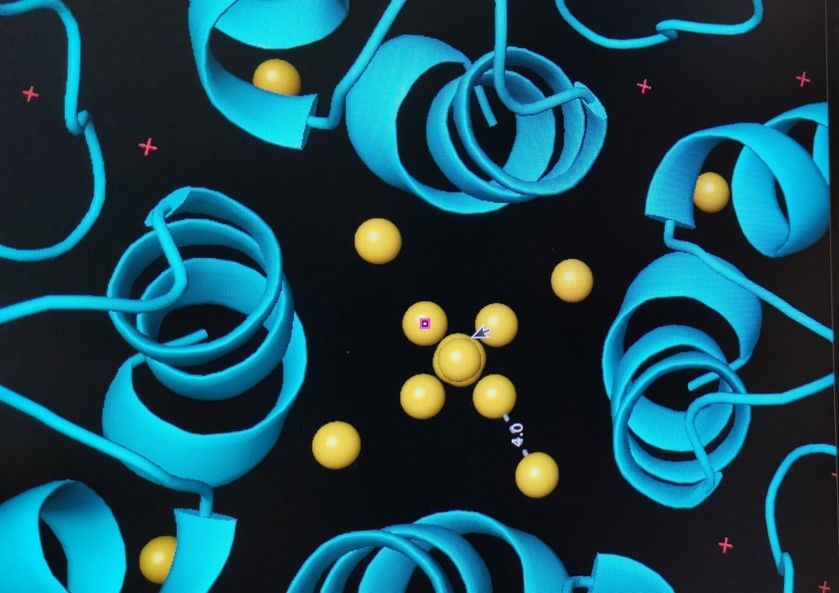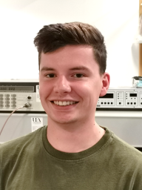
The Elemental Metal Hub recently supported undergraduate researchers through its 2025 summer vacation studentship programme, designed to support innovation, strengthen industry collaboration, and advance the Hub’s strategic priorities.
These competitive studentships provided funding for students to pursue projects that not only advance academic research but also hold potential to create meaningful connections with industry partners.
Two studentships were awarded and successfully completed:
Nickel Uptake in Biomass Crops – University of York
 Aaliyah Draper Dobrega joined Dr Liz Rylott’s group in the Centre for Novel Agricultural Products at the University of York, where she investigated nickel uptake in biomass willow crops. Her project involved harvesting willow biomass, recording fresh and dry weights, and establishing hydroponic experiments. She measured metal content and applied statistical analysis to assess uptake. The research contributes to understanding how biomass crops interact with metals in the environment, a key step towards sustainable biotechnological applications.
Aaliyah Draper Dobrega joined Dr Liz Rylott’s group in the Centre for Novel Agricultural Products at the University of York, where she investigated nickel uptake in biomass willow crops. Her project involved harvesting willow biomass, recording fresh and dry weights, and establishing hydroponic experiments. She measured metal content and applied statistical analysis to assess uptake. The research contributes to understanding how biomass crops interact with metals in the environment, a key step towards sustainable biotechnological applications.
Aaliyah was able to attend the New Phytologist-sponsored Green Planet Day, a full day of presentations, postersgand networking around plant molecular biology. This event was attended by all four members of the group and gave her a friendly environment in which to experience a scientific meeting and associated networking. Aaliyah was also able to meet other scientists from York, along with researchers from other universities.
She commented “This studentship allowed me to take part in research with a tangible impact, learning skills and techniques from post-docs and experts in the field and sharing my own ideas and perspectives. Ultimately, I leave this internship with a real sense of accomplishment, having helped in the greenhouse with harvesting and in the lab with sample preparation, RNA isolation and metal content analysis; strengthened skills in time management, adapting protocols to tricky samples and rising to challenges in research. I’m entering my fourth year of my degree, feeling more confident in my laboratory skills, more resilient and with new knowledge that I can apply to my future research.”
Dr Rylott adds that “This studentship came at a critical time to positively support research developing nickel uptake in biomass willow lines.”
Engineering Ferritins for Rare Earth Recovery – University of East Anglia
 Michael Hopkins worked with Professor Nick Le Brun’s group at the University of East Anglia, focusing on engineered ferritins to recover rare earth elements from liquid wastes. His research included engineering anchoring sites for gold cluster formation in human ferritin, producing the engineered protein in E. coli, and characterising protein–gold interactions through structural and spectroscopic analysis.
Michael Hopkins worked with Professor Nick Le Brun’s group at the University of East Anglia, focusing on engineered ferritins to recover rare earth elements from liquid wastes. His research included engineering anchoring sites for gold cluster formation in human ferritin, producing the engineered protein in E. coli, and characterising protein–gold interactions through structural and spectroscopic analysis.
Reflecting on his experience, Michael said: “The ELEMENTAL summer studentship provided much more training than I was expecting. I had the opportunity to learn a wide range of techniques – including different methods of protein purification, mass spectrometry, protein crystallisation, protein structure determination, and scientific report writing. As a result, I feel fully prepared for my final-year undergraduate research project and inspired to apply for PhD positions in this research area. Overall, I feel the project was a great success.”
A statement from UEA highlights the impact of the summer studentship: “The summer studentship allowed us to extend our planned work on gold bioremediation, exploring engineered binding sites and metal oxidation states not envisaged in the original application. These findings will be integrated with the work plan of Dr Justin Bradley to further enhance the gold-sequestering properties of ferritin.
Funding from ELEMENTAL also provided Michael with invaluable hands-on experience across a range of biophysical techniques. As a direct result of his summer experience, he is now keen to pursue postgraduate study in structural biology.”
Both projects highlight the Hub’s commitment to advancing research at the interface of academia and industry while providing students with valuable opportunities to develop their skills, exchange knowledge, and contribute to impactful innovation.